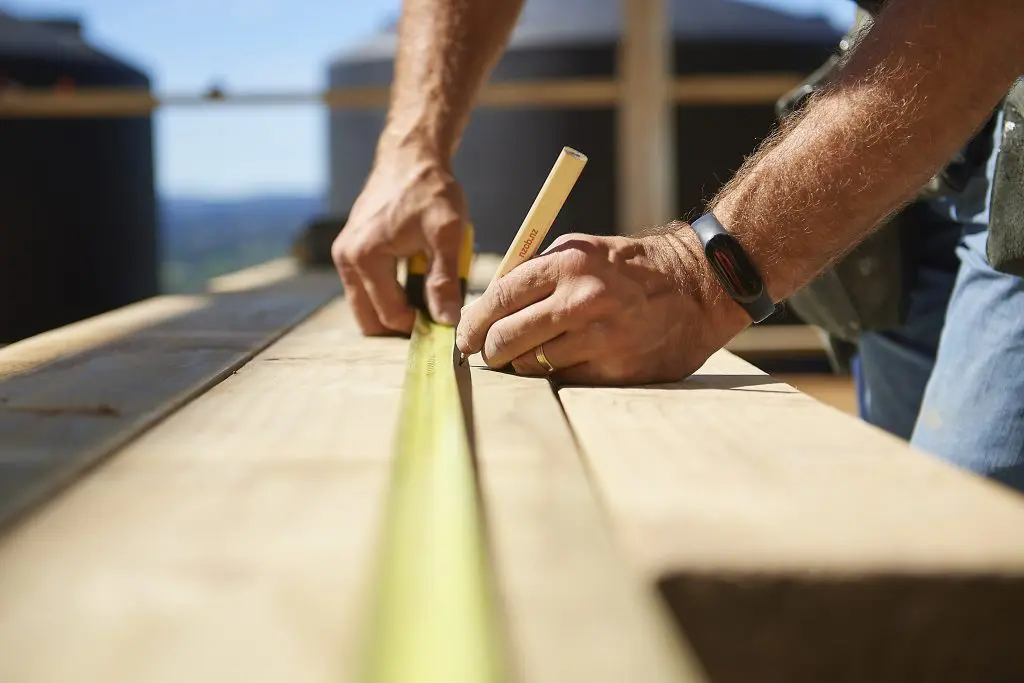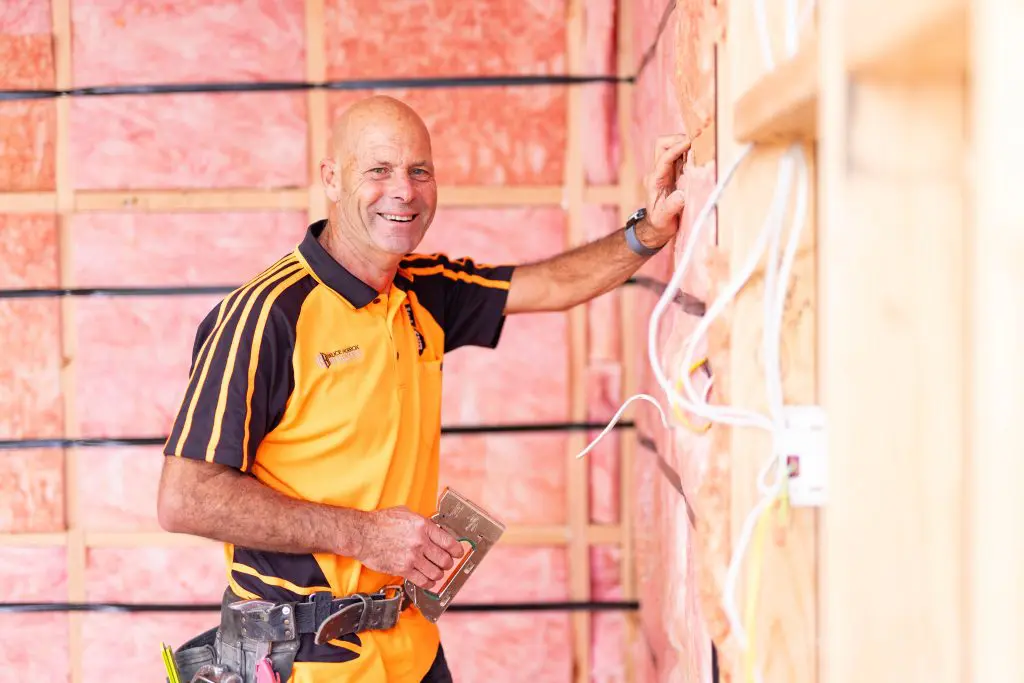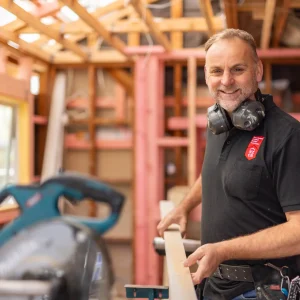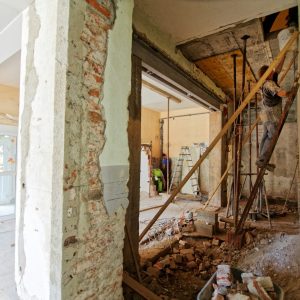It’s no secret that building or renovating can be a daunting endeavour. Between navigating the consent process, managing budgets, and choosing the right people to work with, there’s a lot at stake. Especially when you’re putting your trust in a builder for the first time.
Too many homeowners have been caught out by builders who disappear partway through a job, leave behind substandard work, or demand extra money without explanation. While genuine variations can arise on any build, cowboy builders often raise so-called ‘unexpected costs’ on homeowners as a way to inflate the bill. These aren’t just frustrating setbacks. They can derail your entire project and leave you substantially out of pocket.
The good news is that there are steps you can take to protect yourself. In this guide, we’ll show you how to avoid cowboy builders and explain why working with a member of New Zealand Certified Builders (NZCB) gives you the best chance of a smooth, stress-free build.
What is a Cowboy Builder?
A cowboy builder is someone who claims to be a qualified building professional but lacks the experience, accountability, or ethics to deliver work to the required standard. These operators often underquote to win work, avoid written agreements, and leave projects unfinished or non-compliant.
You might find them advertising on online marketplaces, offering to start “immediately,” or promising a price that seems too good to be true. They tend to avoid industry associations and rarely work under the same name for long.
Unlike qualified, licensed professionals, cowboy builders are unregulated and often uninsured. Their shortcuts can cause long-term issues for homeowners, including costly repairs, legal disputes, or even having to redo the whole project.

A cautionary tale: When trust was misplaced
A recent story from RNZ highlights just how devastating it can be when a builder isn’t properly checked before work begins. In Palmerston North, a homeowner paid thousands of dollars for renovation work that never eventuated. After taking the money and completing little to no work, the builder vanished and stopped all communication. The homeowner was left out of pocket and deeply distressed, describing the ordeal as something that “really ruined me.”
Stories like this are unfortunately not rare, and they highlight the importance of doing due diligence before engaging a builder. Simple checks such as confirming trade qualifications, requiring a written contract, and choosing a verified NZCB member can help prevent these kinds of outcomes.
How to spot the warning signs
There are a few things to look out for when you’re talking to a builder, including
- Reluctance to provide recent references or examples of past work
- No written quote or contract offered
- Requests for large upfront payments, particularly in cash
- Vague timelines and unclear scopes of work
- No proof of insurance, licensing or formal qualification
- Limited or inconsistent contact details, with no visible business branding
If any of you spot any of these red flags, you should take a step back and look for someone else to do the work.
What should you do instead?
The good news is that there are a lot of easy things you can do to minimise the chance of things going wrong. Choose a reputable builder from the start, and you’ll save yourself a lot of stress down the track.
Work with a member of a Trade Association
The most effective way to ensure your builder is qualified and trustworthy is to choose a member of a trade association like New Zealand Certified Builders.
NZCB members must be trade qualified and go through a thorough vetting process before they’re accepted into the association. Effectively, all the paperwork and business checks are done on your behalf. They’re assessed not only on their experience but also their business practices and commitment to ongoing professional development.
“We don’t just accept anyone,” says Scott Rasmussen, Membership & Technical Manager at NZCB. “Being a Trade Qualified Carpenter is the cornerstone of our Association. We check our members are qualified, they’re experience, and that they have maintained good relationships with their clients and industry partners. We’re committed to high professional standards via our code of conduct and promote and support their ongoing education.”
NZCB members are also the only builders in New Zealand who can offer the Halo 10-Year Residential Guarantee, which adds another layer of protection for homeowners. You can search for trusted builders in your region at nzcb.nz/find-your-builder.
Ask to see credentials, qualifications and licensing
Any builder undertaking restricted work must hold a current Licensed Building Practitioner (LBP) license. You can verify a builder’s license at lbp.govt.nz.
You should also ask to see proof of the builder’s public liability insurance, and it’s worth also speaking to them about their qualifications, training, and past projects. A reputable builder will be happy to share this information.
Compare quotes properly
When you’re choosing a builder for your job, make sure you get at least two or three detailed quotes. Be wary of ones that seem unusually cheap or very vague. Cowboy builders will often intentionally underquote to get the job, and then either disappear or inflate costs once the project starts.
A solid quote will break down labour, materials, project milestones, and payment terms. If something is unclear, ask for clarification before you sign anything. Pay particular attention to allowances, provisional sums, or estimates for things like kitchen and bathroom fixtures. Sometimes these are listed at the lowest possible cost, which makes the overall quote cheaper but may not reflect the quality or specification you actually want. A professional builder will explain these items clearly and adjust them to suit your expectations.
It’s also worth paying attention to availability. If a builder promises to start immediately with no clear reason, it may be a sign that they don’t have steady work or are trying to lock you in quickly. By contrast, a reputable builder often had other jobs on the go and may be booked up several months or longer in advance. While it may mean waiting a little longer to get started, that delay is usually a good indication that others trust their work too.
Never start without a written contract
The type of agreement you need will vary depending on the scale of your project. But you should always expect to have something in writing. If everything is done on the basis of a “gentlemen’s agreement”, you have very little recourse if something goes wrong.
Professional builders will always use a building contract for works over $30,000 as required by the Building Act. For works under $30,000 many builders will choose to use a simplified version – such as NZCB’s Small Works and Alterations Contract – to give homeowners peace of mind even for the smallest of projects.
Typically, contracts will outline:
- The full scope of work
- Start and completion dates
- Agreed payment terms
- Dispute resolution options
- Warranty and insurance coverage
Read more about why you need a building contract for every building or renovation project on our website.
Choose a Building Guarantee that stands behind the work
Builders who take pride in the quality of their work are happy to stand behind it. That’s why all NZCB members offer the Halo 10-Year Residential Guarantee – our comprehensive building guarantee designed to protect you long after the work is done.
Halo provides cover for up to a decade, including:
- Structural defects such as weather-tightness failures
- Workmanship or materials-related issues within the first two years
- Defects that become apparent after Practical Completion
- Cover even if the NZCB member is no longer trading
It’s fully transferable if you sell your home, offering added value and peace of mind for future buyers.
Only NZCB members can offer the Halo Guarantee. It’s one of the most robust residential guarantees available in New Zealand, giving homeowners long-term confidence from day one.
Learn more at halo.nz.
Do some background checking
A quick search online can reveal a lot. Look for independent reviews such as Google Reviews, past projects, and whether the business has a consistent presence across platforms. A well-established builder will typically have a website, active business registration, and a portfolio of their previous work either available online or that they can show you in person.
A quick search on the Companies Register can provide detailed information about the company, its directors and shareholders. If you’ve been given a company name or NZBN number and you can’t find it on the Companies Office website, this should ring alarm bells.
If possible, speak to recent clients or ask to view a current job. Genuine professionals will usually be happy to put you in touch with previous clients who can vouch for them.
Watch out for large upfront payments
It’s common to pay a deposit before work begins, but the amount should always be proportionate to the size and type of project. For large-scale builds or renovations, payments are typically made in stages that align with progress milestones or at regular intervals for work completed, such as weekly or fortnightly. For smaller jobs, it may be more common to pay a higher deposit and then settle the balance on completion. Whatever the arrangement, payments should always be clearly set out in your building contract and supported by a payment claim or invoice.

Why NZCB Builders are worth the investment
When you work with an NZCB member, you’re getting more than a tradesperson. You’re getting a builder who is held to the highest standards in training, business ethics, and customer care.
NZCB members are accountable to an independent organisation, backed by an industry-leading guarantee, and actively supported with resources that keep them up to date with changes in law, materials, and best practice.
“Qualified builders welcome questions. Cowboy builders avoid them.”
Already hired a Cowboy? Take action now
If you’ve already signed a contract or handed over money and now suspect something’s not right, start by documenting everything and seeking independent legal advice. A lawyer can guide you on your options and obligations under the contract or , the Building Act and other relevant legislation.
Take photos, save emails and texts, and keep records of all conversations. Contact a construction lawyer or building dispute specialist for advice. You can also reach out to Consumer Protection or MBIE.
If restricted work has been completed by someone without a current LBP licence, you may be able to report them through the Licensed Building Practitioners Board.
Time is critical in these situations, so don’t delay seeking help.
Build with confidence – choose a certified builder
Cowboy builders are still out there, but you don’t have to fall victim to their tactics. By taking simple steps to verify credentials, insist on contracts, and choose a builder affiliated with a professional body like NZCB, you can avoid the risks and build with confidence.
Every homeowner deserves a builder who takes pride in their work, stands behind it, and communicates openly from start to finish. That’s why NZCB exists.
Find your NZCB builder today: nzcb.nz/find-your-builder
Need more advice? Check out these resources
Government and Industry Resources







